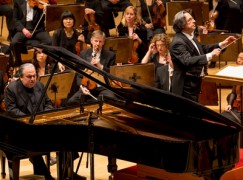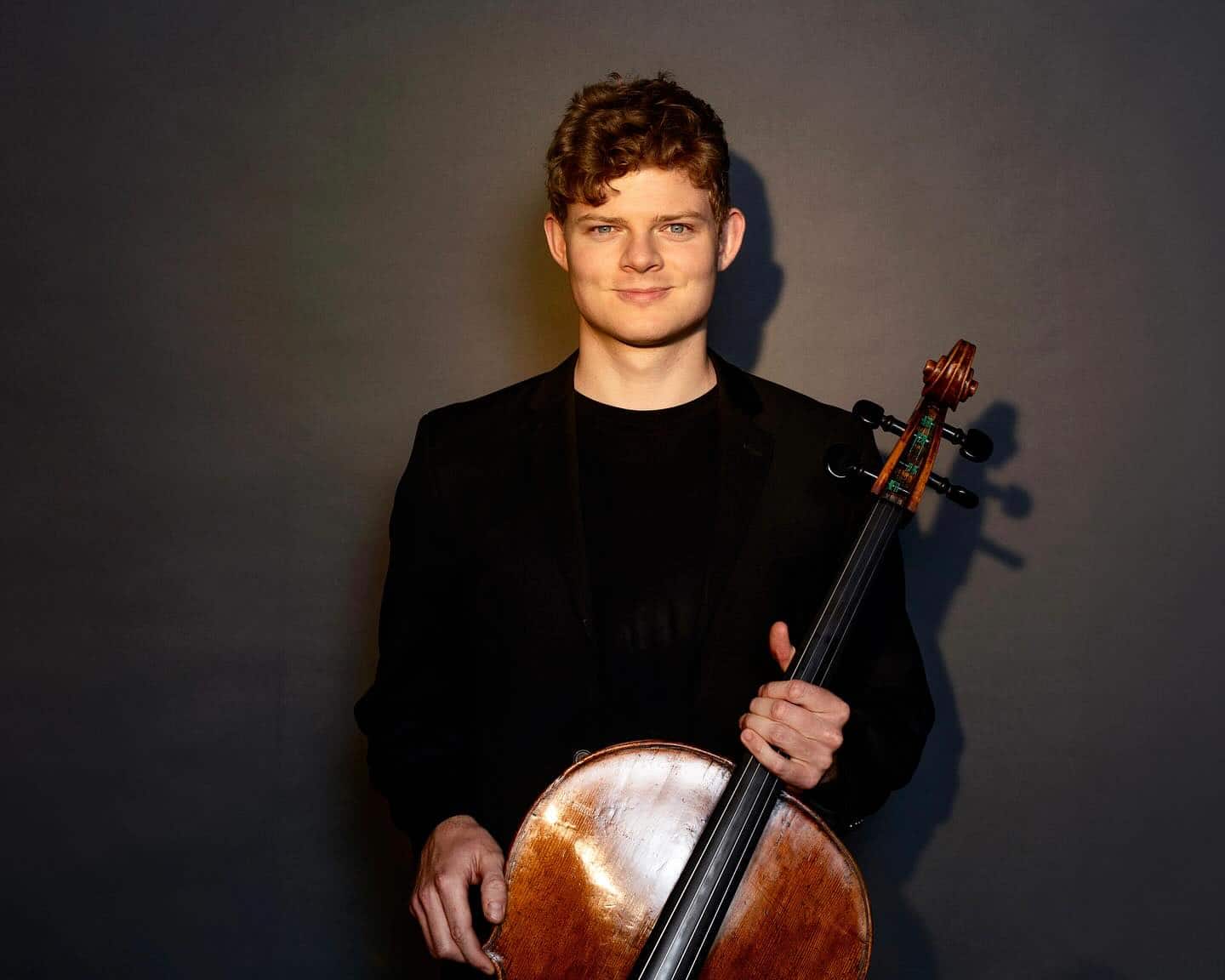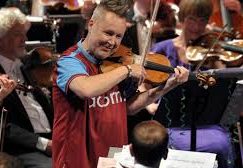Chicago Symphony keeps on shedding cash
mainThe Chicago Symphony Orchestra’s annual deficit has risen to $1.4 million for the year to June 2017, from $1.1 million in 2016, it was announced last night.
Ticket sales were down $32,000, to $22.17 million. Major gifts also slowed down.

photo (c) Todd Rosenberg





I am sure a female music director will come to the rescue as the new music director of Chicago.
The music director has nothing to do with it. People who love the music of Mozart, Tchaikovsky, etc. will come regardless of who’s conducting.
I was shocked to find the box seats are typically over $200 a seat – and you can’t have the front row in the box seat for the whole concert – you have to negotiate with the person behind who has the front seat for which half…
I’ve paid 110Euro to sit right up the back (upstairs) in the Musikverein so far away that I needed binoculars. That was for a Vienna Philharmonic concert with Barenboim on the podium. I wouldn’t do it again as I think that conductor is vastly over-rated!! But it gives you an idea of the increasing costs of attending concerts.
Why do you want to see anything detailed in a concert with Vienna Phil with Barenboim conducting? You go for the show? Then you deserve to be ripped off.
It’s only money. Great art lises money
While one would like to see healthier numbers, it is not a death watch. By the way, I was recently reading a cultural profile of Chicago I believe on Bloomberg where the cultural jewels of that great city were profiled. Guess what? Not a mention of the Chicago Symphony Orchestra.
“CSO at the Movies series brought record ticket revenues of $465,000.”
And they scoff at film composers. In 200 years, (insert name of favorite film composer) will be programmed every season while (insert name of most praised contemporary composer) will be an obscure and neglected entry in Wikipedia.
The most praised contemporary composers are already obscure and neglected, at least to and by regular audiences.
But the current bigging-up of movie composers (read: John Williams) — I find very puzzling. Writing backgrounds and scoring them, especially in the few weeks generally allotted, is certainly a valuable skill. I’ve tried listening to the results in isolation, especially when I hadn’t seen the blockbusters that occasioned them and so lacked any associations, and it was all pretty thin soup at best, no exceptions. Nielson, Martinu and many others did this kind of thing much better and didn’t need the movie.
As to the movies themselves, as a general rule the more heavily these swelling themes are slathered on, the weaker its writing and acting.
Not a good sign or development, imo.
“Nielson, Martinu” — by which I mean with them you can imagine the movie yourself, and a fine one it is, with real emotions every time.
I might be willing to take the other side of a bet with you Herrera, and return in 200 years to collect, but we need a better pair of choices.
Meanwhile, no film composer has equally this. Not within a bull’s roar – and there were other stunners from the same composer!! I don’t include classical composers like Prokofiev et al.
https://www.youtube.com/watch?v=Tek8QmKRODw
Not all film composers are created equal. If film composers come and conduct their own music, and are halfway decent conductors – there’s a good creative experience there for the orchestra, and working with a living composer. The quality could be quite high.
That is different from a pops conductor reading through a bunch of music they didn’t write, or a movie composer who’s not really good at
conducting in a live concert environment.
Korngold wrote for the movies, I’m not claiming there’s any shame in that. Good composers wrote jingles too and backgrounds for commercials, I bet good marketing could attract a full house for an evening of that.
Just not for me. You don’t have to be in love with the sonata form to find such a development yucky.
If we require that the conductors be the composers there won’t be much music making going on.
Chicago is famous for its great and vibrant black community. In order to continue selling the same stuffs while pumping up sale figures, CSO should hire a black music director and move its residence to the south in 95th street.
Whites have already off loaded their religion (Christianity) on Blacks, the last thing Blacks need is to take the burden off white people by listening to the music even white people don’t listen to anymore.
Move the CSO to China, there are lot of beautiful empty halls in need of a resident orchestra.
Great idea! Also rename themselves to China Symphony Orchestra so that they can continue using their old domain http://www.cso.org.
Or they can just try both the black and the Chinese ways, and see which of those tricks would keep their sales figure higher …
Oh so now Music is a target for allegations of white supremacy?
The CSO does have an outreach program into the South Side. Last year Muti conducted Beethoven 5th among other works in a southside church. I went to two chamber music events. (One was very good, the other not very good.) All of these are free.
A review of the first concert noted:
“As soon as the Chicago Symphony Orchestra played the first four notes of Beethoven’s Symphony No. 5, an audience of over 3,000 at the Apostolic Church of God on Chicago’s South Side broke into applause.
Riccardo Muti, the Chicago Symphony Orchestra’s music director, stopped the orchestra, laughing, and said “This is a difficult beginning, so you are forcing me to try again! Can we try once more?” “
Very impressive!
We soon can start this kind of outreach programs everywhere in Germany too. Especially the people in Duisburg-Marxloh, Hamburg-Billstedt and Berlin-Neukölln can’t wait to hear such concerts.
The CSO’s budget is about $75 million, so $1.4 million is less than 2%. Not great, but hardly catastrophic. And an endowment of about $270 million. I think they can weather the storm. Admittedly their tickets are not cheap, but neither are those for the Bulls, Bears or Blackhawks.
Precisely.
Besides some very funny ones, this is the only comment that’s makes sense concerning financial statements.
What are the financial results of other artistics or even entertainement corporation from the same Chicago? I’ve found some figures about the city budget for 2016. It is not really oustanding for the whole city.
“Chicago sunTimes Editorial Board
Chicago’s pension albatross
Chicago’s four public employee retirement funds are short nearly $20 billion. Each pension fund has just a fraction of the amount it needs to pay promised benefits.
Consider these funding percentages:
* Police: 30 percent
* Fire: 24 percent
* Municipal Employees: 37 percent
* Laborers: 57 percent
* Total: 35 percent
Chicago’s three massive bills now due
* $550 million: By law, the city must determine in 2015 how to contribute $550 million more toward the police and firefighter funds in 2016.
* $300: The city’s estimated budget deficit for 2016. The budget must be passed this year.
* $50 million (at least): New revenue owed by to the Municipal Employees and the Laborers funds that must be budgeted in 2015.
— Total bill: $900 million (to be paid with new revenue or by cutting expenses)
Chicago’s main funding source for pensions is property tax revenue. In 2015, the city expects to draw in about $830 million from property taxes. About 43 percent of that money goes to pensions; about 45 percent goes to pay other city debts, according to the city’s 2015 Budget Overview
Chicago’s plummeting credit rating
Because of the city’s weak finances, driven by its massive pension debt, rating agencies over the last few years repeatedly have downgraded Chicago’s bond rating. This drives up borrowing costs. Only Detroit has a worse rating. Moody’s Investors Service rates Chicago two levels above junk status.”
A couple of years ago I was organising a series of activities for a group of 20 or so American exchange students in Europe. As it happens they were from Chicago – which is why this item has caught my attention. I suppose I would describe them as well educated, middles class types, for lack of a better term.
When the subject of classical music came up, I was surprised at the hostility to the idea of going to a concert in Lyon. They genuinely didn’t believe that anyone “listened to that stuff any more”. Not one student was interested, or would admit to it.
The lack of interest was worse than I would expect from a similar group from anywhere in Europe. They weren’t even curious.
Let me make this clear. I’m not saying that they were representative of the whole of the US. Maybe they were an aberration, I don’t know, but I do believe that situations like this are cause for concern.
I was affraid one time to be in a concert in Lyon. For any reason, they closed the concert hall in order to wax the floor or some other kind of maintenance. Nothing special, if it was not during the season concert.
Poor Sir Neville Marriner. He had to manage that concert in a church with an abominadable acoustic. (april/may 2012)
If young students — elementary level students — are not provided any opportunity to hear the music of Bach, Beethoven and Brahms (or perhaps Tchaikovsky, Rimsky-Korsakov and Grofe, as I did at age 5), then how can they be expected to develop any love for it?
Middle school is too late. High school and college activities are absolutely self-absorbing. An orchestra, any orchestra, every orchestra, MUST develop an effective, proactive outreach programme addressing our kids while they are open to new information and new experiences.
Strings work best. Check out the Tokyo Sinfonia.
“If young students — elementary level students — are not provided any opportunity to hear the music of Bach, Beethoven and Brahms (or perhaps Tchaikovsky, Rimsky-Korsakov and Grofe, as I did at age 5), then how can they be expected to develop any love for it?”
Nail on head. It is entirely off the radar for so many people.
Totally agree!
I’d say ages 5 through 11 especially. Imagine an orchestra invading an elementary school for the day in an array of sub-groups — trios, wind quintets, a solitary contrabassoon or tuba, reassembling in nonets &c– all schooled in the spirit of fun and armed with cheap instruments the kids can try — I think it has to begin there.
The earlier end of the range also contains the moment for larval prodigies to discover sounds that attract them. Not as good as having musician parents but still something. The tragedy of cutting music in the schools is not merely lost future audiences but lost future soloists and composers.
The CSO has made valiant efforts at outreach to underserved communities around Chicago and continues to do so through their education wing. Their efforts should be applauded not criticized as some are doing on this thread.
The deficit in terms of the percentage of annual budget is indeed small, however, it is the year over year repetition of a deficit that is troubling or indicates that either revenue (most likely contributed) needs to rise or expenses need to be cut. Moving forward in the same manner is not fiscally responsible.
But overall the institution seems overall healthy financially and in better shape than its counterparts in the US such as the Cleveland Orchestra or Philly where the economies of those cities do not seem to be keeping up with the finances it takes to run a world class orchestra.
I live in the suburb of Chicago, and would love to attend as many CSO concerts as possible, but with price starting $60-70 up to $250 per concert, I can’t afford to go more than only two three times a year… Parking around the hall costs minimum $15 – $20 for 3 hours… I love classical music and want to take my family and my son to a CSO concert every month, but even with a student ticket (available only for selected concerts, and no guarantee that the seats will be together with adult tickets), it would cost about $200 for my family to attend for a concert. People say classical music is dying, young people are not interested in classical music concerts… then they should make it more accessible for middle/lower class people. Yes, the CSO is a world class orchestra, but this is only for a certain class of people and not for everyone in the community to enjoy.
I totally agree and sympathize, and at those prices I wouldn’t go much, either. Unfortunately, it costs a lot of money to run an orchestra, with the cost of 100 musicians having to be covered by 2,200 ticket buyers. But it will cost every bit as much to attend a Bulls game (and even the Cubs might not be much cheaper).
I too live in the far suburbs of Chicago, such that it is difficult if not impossible to get to concerts on the days I want. But if someone innovative — and I have told two musicians and a life trustee this already — would sponsor a BPO-like digital concert hall, I’d be the very first subscriber, and at any price.
No matter where you place a major orchestra like that it will be inconveniently distant for some people who want to hear it.
Sir Andras and the CSO collaborated in some music-making last night that can only be described as “exquisite.” Disconcerting however: plenty of empty seats. Does anyone know the %age annual seat sales for CSO, is it a publicly disclosed number as per the Met Opera? I wonder how it would compare with the Solti years, when it was often difficult to get a ticket, and the house was routinely full….
I don’t think it actually helps very much for kids to just hear or observe an orchestra. Instead, kids are hooked when they actually play an instrument. Tactile remembrance of an experience makes the connection and attachment work when adults. Kids don’t just watch soccer or baseball. Baseball teams don’t go into schools to have them observe them playing! They have the kids play, too. Until STEM is across the board STEAM, we are growing musically-atrophied generations.